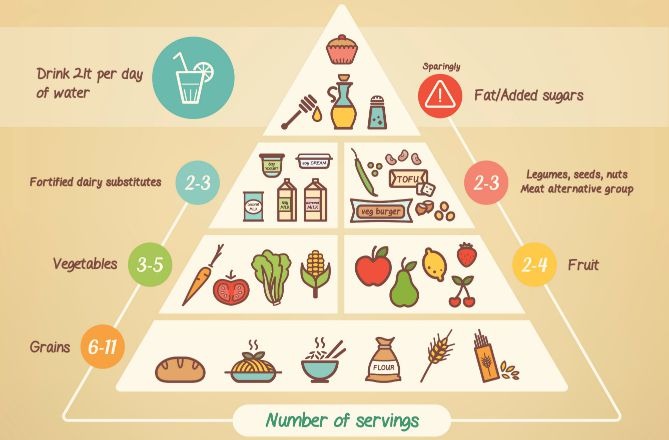The Vegan Food Pyramid
Over 8 million Americans practice veganism, a plant-based diet that eliminates all animal products. Vandana Sheth, registered dietitian and spokesperson for the Academy of Nutrition and Dietetics, recently assured us that a vegan-diet is safe and very healthy if practiced knowledgably.
Click here for Vegan Baking Tips and 5 Must-Try Recipes slideshow.
The vegan food pyramid consists of grains, vegetables, fruits, beans, nuts, and herbs. The Vegetarian Resource Group (VRG) created a guide to educate vegans on how much they should be eating and how much they should be eating. The two largest food groups in the VRG vegan food pyramid are grains and vegetables. The VRG recommends eating mostly whole grains and eating a variety of vegetables.
The vegan food pyramid also highlights beans, peas, lentils, and soy as significant vegan protein sources. Vegans are advised to have three to six servings of protein a day, such as half a cup of tofu, one cup of soy milk, or half a cup of beans. Nuts and seeds also serve as a protein source, and the recommendation is around one to three servings a day.
"A well-planned vegetarian diet including a vegan diet can be nutritionally adequate and appropriate for people of all stages of life, according to the Academy of Nutrition and Dietetics," Sheth says. "However, just because it is plant-based does not make a diet completely healthy. For example, you can have a plant-based diet that is full of high-fat, high-sodium, and high-sugar options."
When planning a healthy vegan diet, refer to the vegan food pyramid and health and nutrition guidelines.
The accompanying slideshow is provided by fellow The Daily Meal editorial staff member.
